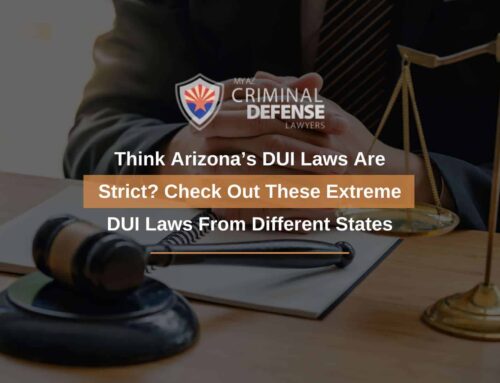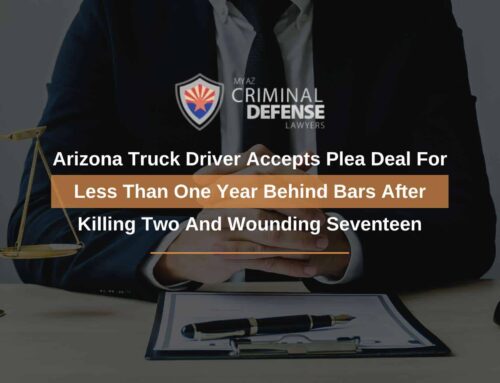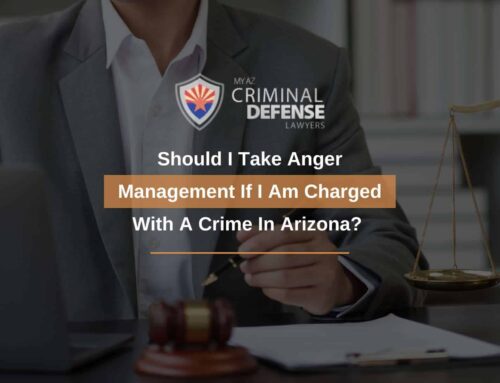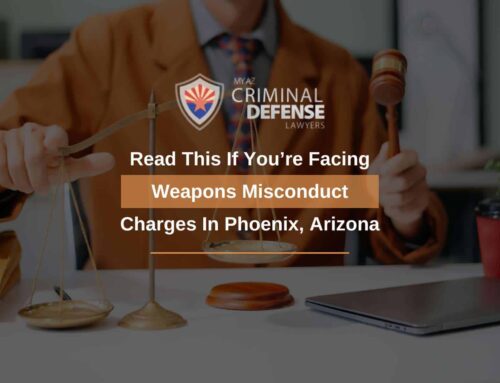Restoration Of Rights In Arizona
The side effects of a criminal conviction can stay with you far after you’ve completed all of your sentencing requirements imposed by the court. You may have other penalties to complete like community service, drug and alcohol education, and more. Another detrimental effect that can accompany a criminal conviction is the loss of certain civil rights. Rights like voting, serving on a jury, and running for public office are part of what make our country special. It may also be important for someone convicted of a crime to regain the right to purchase and possess a firearm. Regaining rights guaranteed to us by the U.S. Constitution can help a reformed convict feel back at place in their community. The process of restoring rights after paying your debt to society is one you’ll want to execute without errors and delays. If you’re considering hiring a professional criminal defender in Maricopa County to restore your civil rights, call 480-531-8178.
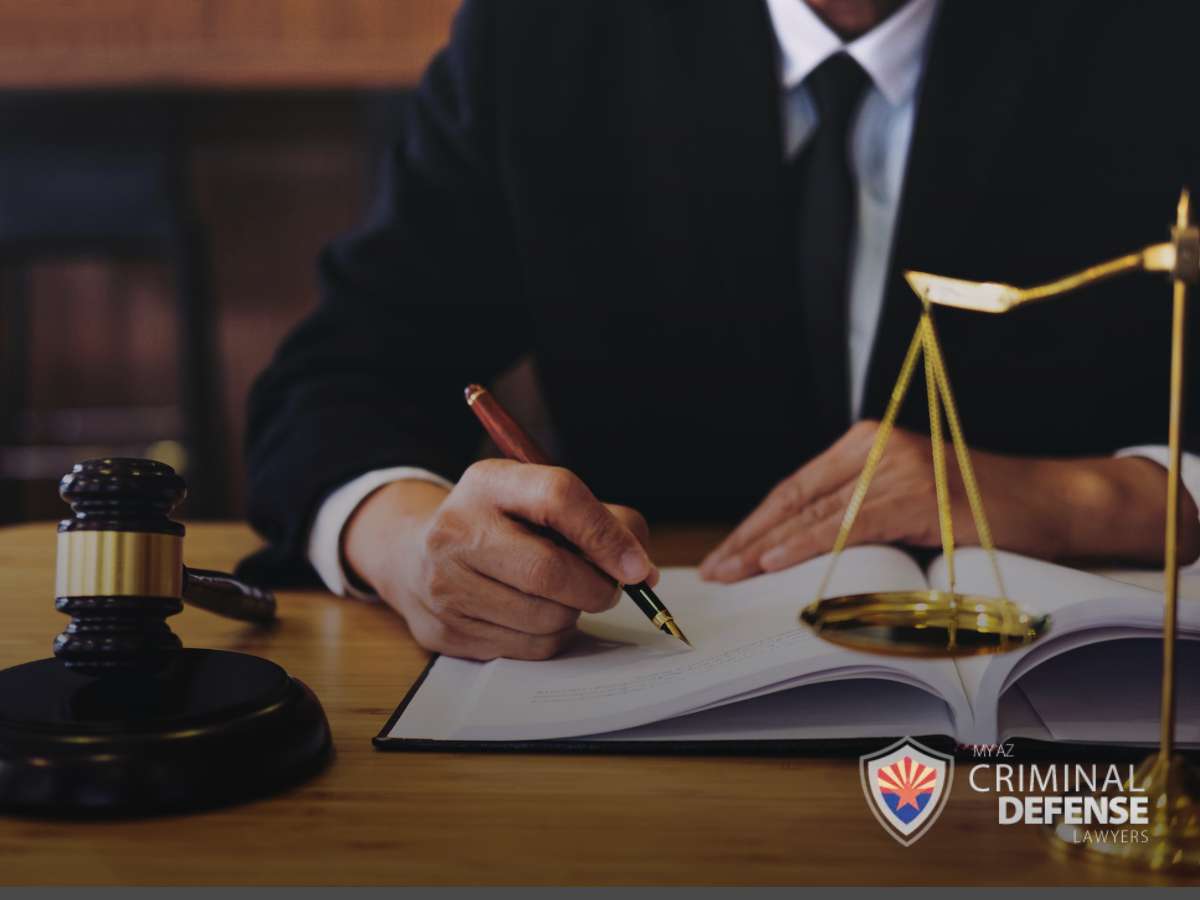
Do I Qualify For Automatic Restoration Of My Civil Rights?
For some criminal offenders in Arizona, civil rights are restored automatically without any action from the defendant. The defendant’s will only be restored automatically if this is their first felony offense. Subsequent offenders don’t have the benefit of their civil rights automatically being restored after completing sentencing requirements. This is codified by A.R.S. § 13-907. This statute provides for automatic restoration of civil rights for first-time felony offenders, and if an eligible offender submits an application for rights restoration, the court should grant it without a hearing. Even if it is a first-time conviction for the defendant, they are ineligible for automatic rights restoration if they were convicted of a dangerous offender under A.R.S. § 13-704 or a serious offender under A.R.S. § 13-706. Therefore, an applicant with multiple felonies or with a dangerous or serious conviction may need extra legal help to obtain post-conviction relief. It should also be noted that automatic restoration occurs for rights like voting and serving as an elected official but not for firearm rights. For your free consultation with one of our experienced Arizona criminal defenders, call 480-531-8178
Arizona Revised Statutes Section 13-908. Restoration Of Firearm Rights
The procedure for restoring firearm rights after a felony conviction in Arizona is set forth by A.R.S. § 13-908. This statute also describes the procedure for applying for restoration of civil rights. This can be used by criminal defendants with more than one felony conviction or who have not paid full restitution to the victim. This section also provides that dangerous and serious offenders aren’t eligible for restoration of their firearm rights even after completing their sentencing requirements. Per A.R.S. § 13-910, a person convicted of a dangerous offense does not qualify to have their firearm rights restored. A person convicted of a serious offense must wait at least 10 years after their absolute discharge to apply to restore firearm rights. Deciding whether or not a felon’s firearm rights will be restored is up to the judicial officer assigned to the case. That’s why it’s vital that the application is persuasive and in compliance with Arizona law. This is where a skilled criminal defense attorney can help your situation. To schedule your free consultation to determine your best course of action with a dedicated criminal defender in Arizona, call 480-531-8178.
How Does The Rights Restoration Process Work?
The civil rights restoration process will happen automatically for first-time offenders of crimes that aren’t serious or dangerous in nature. Felons with multiple offenses and serious offenders will need to initiate the process themselves. The first step to restoring rights is completing every penalty and requirement imposed by the court during sentencing. This includes jail or prison time, fines, community service, probation, and victim restitution. When all of these requirements are completed, the applicant is considered to have an “absolute discharge.” The defendant has the best odds of success at rights restoration after obtaining an absolute discharge of their sentence. In fact, the court may have no reason to delay rights restoration if the defendant has obtained an absolute discharge. But a defendant who doesn’t qualify for automatic rights restoration has to get the process going on their own accord.
The application needs to include their basic information such as name, address, and telephone number. If the applicant is represented by an attorney, that attorney’s information and bar number should be included as well. The applicant should also provide the case number for all convictions from which they seek relief. The applicant should include their Certificate of Absolute Discharge from Imprisonment from the Arizona Department of Corrections, as well as a payment history of all financial sanctions from the conviction(s). The defendant should provide explanation if any of their requirements haven’t been fulfilled. The defendant should also explain any other information that they believe the court should consider for the application. This can all be supported by documentation that the applicant provides. For more information about the rights restoration process in Arizona, call 480-531-8178 to schedule your free consultation.
Does Restoring My Rights Help With My Criminal Record?
Restoring your rights does not seal your criminal record or set aside or expunge your conviction. These are separate processes that you must complete if you want to soften the negative effects of having one or more criminal convictions on your record. Unlike rights restoration, these processes don’t happen automatically for eligible defendants. The defendant must submit an application- separate from an application to restore civil or firearm rights- to the court for consideration. But they come with the benefits of making it harder for others to view a criminal conviction or publicly display that the defendant has completed all of their sentencing requirements. A skilled Arizona criminal defense lawyer can walk you through the differences between rights restoration, sealing criminal records, set asides, and more. To schedule your free phone consultation with our firm, call 480-531-8178.
Skilled Criminal Defense Attorneys For Rights Restoration & More
My AZ Criminal Defense Lawyers has experience representing defendants facing a variety of charges all the way through trial and beyond. This includes representing applicants seeking post-conviction relief in Maricopa County. Applicants seeking to restore their civil and firearm rights in Arizona are not entitled to a court-appointed attorney. Mistakes in the application could cause the rights restoration to be delayed, or even result in a denial which the applicant will need to appeal within 30 days. A defendant may find that they are held back in life until they can restore their civil rights and obtain other forms of post-conviction relief.
Applicants will see the best results when their application is clear and convincing and filed correctly the first time. For guidance and representation seeking post-conviction relief in Arizona, you can consult with as many attorneys as necessary to find the right fit for you. To save time and resources, you can start with law firms that offer consultation free of charge. Our dedicated defense attorneys assist our clients in a variety of legal situations and start the process with no risk or obligation for you. To schedule your free phone consultation, contact our firm by calling 480-531-8178.

My AZ Criminal Defense Lawyer
Mesa Location:
1731 West Baseline Rd., Suite #100
Mesa, AZ 85202
Office: (480) 448-9800
Glendale Location:
20325 N 51st Avenue Suite #134, Building 5
Glendale, AZ 85308
Office: (602) 509-0955
Tucson Location:
2 East Congress St., Suite #900-6A
Tucson, AZ 85701
Office: (520) 441-1450
Avondale Location:
12725 W. Indian School Rd., Ste E, #101
Avondale, AZ 85392
Office: (623) 499-4222

